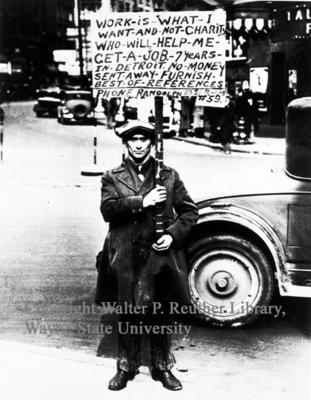
Gerard Henderson,
Executive Director of the Sydney Institute for not Fact Checking and Imaginary Economic Fairy Theory
Making a job of IR reform
The Catholic Church is wide of the mark with its criticism of plans for the workplace, writes Gerard Henderson.
It was a pause, replete with meaning. During her interview with John Howard on the ABC Radio AM program yesterday, Catherine McGrath adopted her familiar stance of an advocate rather than a genuine inquirer. She put it to the Prime Minister that "Sweden, Norway, Iceland, Denmark have highly regulated labour markets but have higher productivity and higher wealth per capita than Australia".
Howard responded: "Well, what about jobs?" There was a long pause before McGrath raised the issue of Germany and made an unclear point about the collapse of the Berlin Wall. Certainly Sweden, Norway and Denmark have better employment outcomes than most of the OECD economies in continental Europe. Yet unemployment in all these nations has increased since 2002. This contrasts with the US, Britain, Australia and New Zealand, which have less regulated industrial relations systems and where unemployment has declined over the past three years.
So what are those unemployment rates? Norway, 4.3%, Denmark, 5.7%, Sweden, less than 5.5%. They also manage to have free tertiary education and all employees enjoy a minimum of 5 weeks paid leave anually. There's a dime's worth of difference between the per capita GDP of Sweden and Australia, which has half our population. It's called Google, Gerard, I'm sure the "Sydney Institute" has internet, clicky clicky.
In any event, the stark contrast within the OECD is between the US and Britain on the one hand and Germany and France on the other. Unemployment in Germany is close to 12 per cent and the figure for France is 10 per cent, compared with 5 per cent in the US and under 5 per cent in Britain. The relevant figures for Australia and New Zealand are 5 per cent and about 4 per cent, respectively.
The message is indisputably clear. Less regulated labour markets contribute to employment growth. More regulated labour markets are invariably associated with high unemployment. Even so, the message from the Howard Government's document Workchoices: A New Workplace Relations System, which was released by the Prime Minister and the Workplace Relations Minister, Kevin Andrews, on Sunday, will not be easy to sell within the electorate.
Er, no, there's no clear message. For example, Portugal, the poorest nation in the EU has a 2.5% unemployment rate. Switzerland, which has a typically European economy also has an unemployment rate of less than 3%. Ditto Luxembourg and the Netherlands. To claim to divine some sort of economic truth from a single statistic would be, well talking out of one's ass.
As Peter Costello remarked previously, Australians don't march in the streets for economic reform. A majority of Australians have accepted the necessity for reform over the past two decades, but that's about it. Then there is the fact that opinion leaders and commentators tend to favour more regulated labour markets. This is the case with many employees in the media, academics, schoolteachers and public servants along with religious institutions.
Take the Australian Catholic Commission for Employment Relations, for example. It recently released a critique on the Howard Government's industrial relations reform agenda, which it claims spells out "Catholic social teaching". In the introduction, a distinction is drawn between the "social model" and the "market model" in Europe. The clear implication in this paper is that the former is more in line with Catholic social theory than the latter. Maybe so. What the author of the document fails to point out is that unemployment is twice as high in "social model" nations (for example, France) than in "market model" societies (for example, Britain).
True, but they also have higher levels of illiteracy and higher poverty rates. While full unemployment might be great, there are other factors that make a country livable.
In Online Catholics (issue 58, June 29, 2005) Neil Ormerod declared that "it is difficult to see how Kevin Andrews reconciles his workplace reforms with his Catholic faith". Ormerod is professor of theology at the Australian Catholic University in Sydney. In the same issue, James Macken (a former judge of the NSW Industrial Relations Commission) wrote that the Howard Government's agenda is "contrary to Catholic teaching".
How odd. It is difficult to imagine Online Catholics running two articles in a single issue criticising Catholics for not following traditional Catholic teaching on, say, birth control or divorce. Also, why is it contrary to Catholic social teaching for the likes of Andrews to be advocating outcomes which encourage job creation along with a decline in unemployment?
How odd. Gerard doesn't deign to tell us precisely how these reforms will encourage job creation and reduce unemployment, rather than encourage employers to force existing employees into casual-like status instead of hiring more. Is he seriously suggesting that because people can hire workers for less they'll just hire more of them? Why not just pay the ones you've got less and increase profits? No wonder he runs a think tank, you couldn't trust Henderson to run a lemonade stand. But then this appears to be a man who went straight from university to a life of political hackery before slowly settling to professional toadying for influential business interests.
Interviewed on the ABC Radio National Breakfast program on August 9, the executive officer of the Australian Catholic Commission for Employment Relations, John Ryan, opposed the proposed changes to the unfair dismissal laws. Ryan maintained that "small business employers don't have a problem with recruitment" because they "engage people as casuals or as contractors". In other words, he acknowledged that the existing legislation discourages small businesses from recruiting permanent employees but believes that such a situation is more in line with Catholic social theory than the Howard Government's reform agenda in this area. Quite bizarre, really.
Nonsense, every employer wants to pay as little as possible for labour, just like every consumer wants to pay as little as possible for products. The fact that employers prefer casual arrangements is simply illustrative of the fact that casual arrangements offer far less value for workers than full time arrangements, duh. Really, how stupid. Businesses are driven to maximise profits, not hire full time employees. It's moronic to suggest that allowing businesses to minimise labour costs will lead to more employment. If I have 10 workers meeting my output needs why would I hire 5 more? Out of the goodness of my heart? If I need more workers to increase my volume wouldn't I just, gasp, pay the market price of the labour I wanted? I mean, fuck, I'd love a new Xbox but you don't see me whinging to nanny government to force Microsoft to change its pricing to make the market more attractive to me. If I can't afford it, I just don't buy it, perhaps enough people will feel the same and Microsoft will lower their prices to sell more Xbox. Wow, that must be that invisible hand thing.
The Catholic Church is not alone in its support for a more regulated industrial relations system.
In July, Archbishop Phillip Aspinall, the newly elected Anglican primate, said he might even man a picket line in support of trade union opposition to the Coalition's reform agenda. He was particularly critical of likely changes to the existing unfair dismissal legislation. This despite the fact that such Labor MPs as Kim Beazley, Stephen Smith and Tony Burke have acknowledged that there are some problems with the existing system - as has the ACTU secretary, Greg Combet.
Industrial relations reform has seldom been popular. This was true of the Keating Labor government's legislation in 1993 and of the Howard Government's first attempt at reform in 1996. However, both reform packages contributed significantly to Australia's fine economic performance over the past 15 years.
Paul Keating was able to advance a credible, cogent economic argument for his reforms. John Howard's proposed market distortions have only the support of partisan hacks paid for by the business community, I haven't seen a credible economist evince a mechanism, let alone a theory by which this heavy handed intervention can possibly succeed. Of course it's very easy to advocate the erosion of workers' bargaining power from Henderson's position, lapdogs never have to bargain with their masters.


























